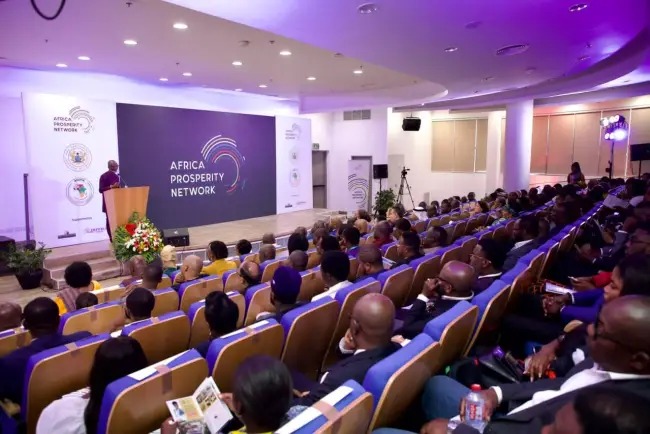Business and institutional leaders from across the African continent have pledged their full support for the second Africa Prosperity Dialogues (APD), proposed to take place in Ghana from Thursday 25 to Saturday 27 January 2024.
They pledged at a ceremony to officially launch the second edition of the Dialogues which was held at Africa Trade House in Accra today (Sunday 18 June 2023).
The APD launch was a prelude to the 30th Afreximbank annual meetings taking place in Ghana from 18-21 June 2023 on the theme “Delivering the Vision, Building Prosperity for Africans”.
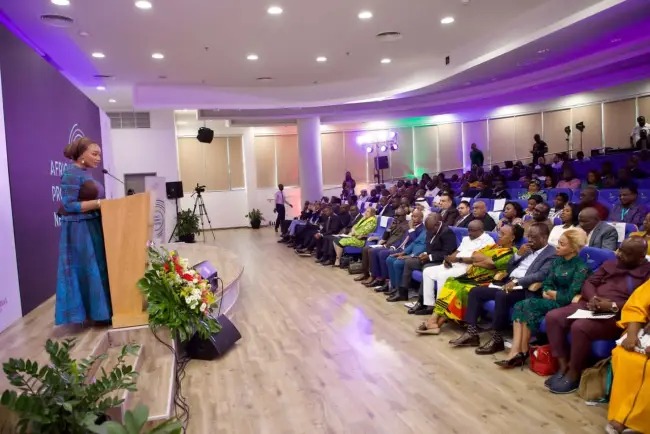
The 2024 Africa Prosperity Dialogues were officially launched by the Second Lady of the Republic, Samira Bawumia.
In her address as the special guest of honor, Hajia Bawumia said she is confident that the second edition of the Dialogues will create a good platform to discuss the challenges of the continent.
She called on participants in the Dialogues, which organizers expect will take place from 25-27 January 2024, to propose workable policies to show how the potential of Africa’s youth and the women of Africa can be harnessed to stimulate the prosperity of the continent.
“I urge all stakeholders to commit to action. Let us not limit ourselves to the conversations and agreement, but also implementation of those ideas and solutions which will be generated during these dialogues,” the Second Lady said.
“Let us invest in education, vocational training, and entrepreneurial support for our young people. Let us break down the barriers that hinder women’s progress and ensure full participation and let us work tirelessly to realize the immense potential of the AfCFTA by fostering collaboration and investment in infrastructure and removing trade barriers,” Hajia Bawumia urged.
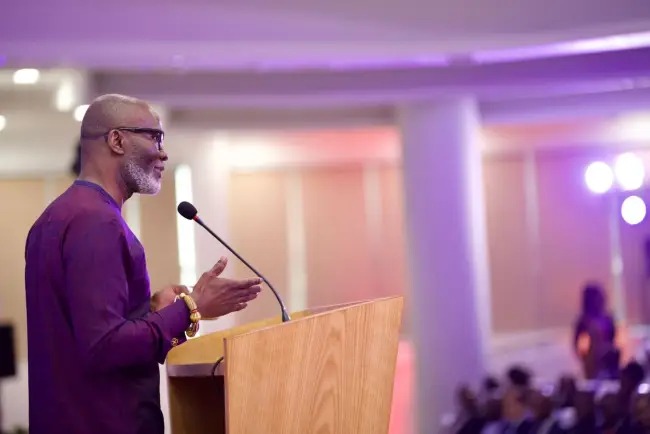
In his opening remarks, Gabby Asare Otchere-Darko, executive chairman of the Africa Prosperity Network (APN), and organizer of the Africa Prosperity Dialogues, welcomed business leaders and other guests first to Ghana and the launch.
He said the private sector, the essential driving force of the African Continental Free Trade Area (AfCFTA) initiative, needs all the support at the disposal of African countries to ensure that the AfCFTA agreement is fully implemented.
“We all know that there is only one way for Africa to succeed, which is that Africa must get it right and it must own its own destiny,” Otchere-Darko said.
“We see the single-market project as perhaps the most important, significant, and transformational project anywhere in the world for this century. If we can get it right, then we can get Africa right.
“We are grateful that the private sector in Africa has shown commitment to this project. And what is this project? The project is that every year, we will meet as in political leaders, business leaders, thought leaders, women’s organizations, youth organisations, CEOs, presidents, ministers of trade, ministers of industry, and review [the implementation of the AfCFTA.
“This will be driven by the private sector in terms of how they want this project – the single market – to work,” Otchere-Darko said.
Procurement quota
The president of the African Business Council, Dr. Amany Asfour, delivered a solidarity message and argued that heads of state and government of the 50-plus countries on the continent need to outsource 40% of their procurement to indigenous private sector players on the continent.
The Council president said it is her firm belief that such a move will strengthen Africa’s private sector’s capacity to stimulate economic growth.
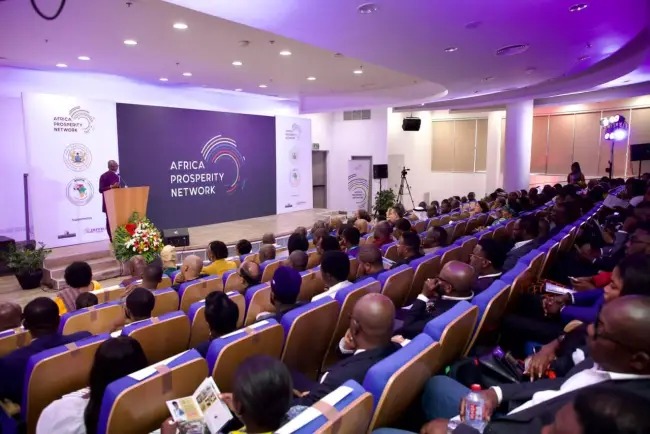
AfCFTA/APD partnership
The secretary general of the African Continental Free Trade Area (AfCFTA), Wamkele Mene, also presented a statement of support.
He said the AfCFTA Secretariat has no reservations whatsoever about partnering with the vision of the Africa Prosperity Network (APN) through its flagship event, the Africa Prosperity Dialogues, to talk, plan and devise strategies by which private sector players across Africa can lead efforts aimed at making the AfCFTA a success.
“This dialogue is so important and that is why when the chairman [Gabby Asare Otchere-Darko] came to us [the AfCFTA Secretariat], we did not need to be convinced, because we share the vision of an AfCFTA that is driven by the private sector.
“I look forward to the second edition next year,” Wamkele Mene said.
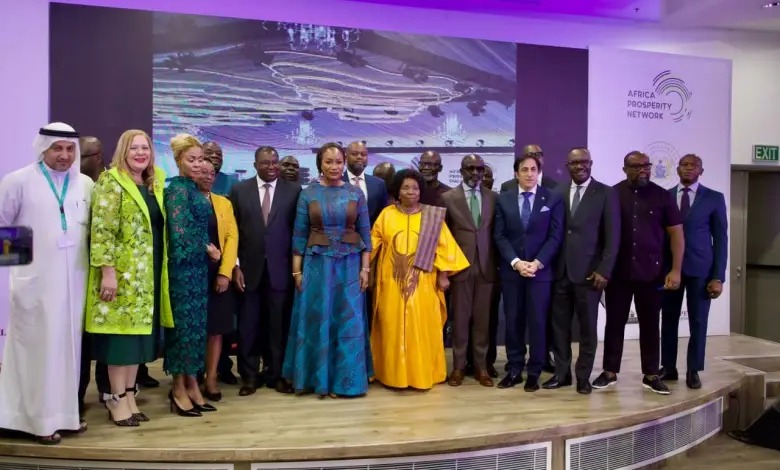
Role of the Private Sector
The chairman of the McDan Group, Dr. Daniel McKorley, in reflections on the action compact from the maiden edition of the APD, said business leaders on the African continent must get closer and explore the many benefits the AfCFTA offers their businesses.
He also said that, through personal experience, he can confidently say that the two most important requirements for positioning Africa-based African businesspeople to attract the strategic investment they need are good packaging of their businesses and upholding integrity in all their dealings.
Other business leaders who attended the ceremony and addressed guests were Dr. George Agyekum Donkor, the president and chairman of the board of directors of the ECOWAS Bank for Investment and Development; His Excellency Albert Muchanga, Commissioner for Trade and Industry, African Union Commission; and Nana Bediatuo Asante, Secretary to the President of the Republic of Ghana.
Also among those present were Ibrahim Mohammed Awal, Ghana’s Minister of Tourism, Arts, and Culture; Francis Asenso Boakye, MP, the Minister of Works and Housing; and Michael Luguje, director general of the Ghana Ports and Habours Authority (GPHA).


